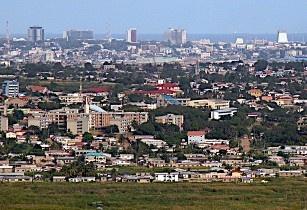Foreign independent power producers arrive in Ghana to invest in the countrys power sector
At the last count, there does not seem to be a solution to the power crisis that has enveloped the country whether it is the industrial or domestic sectors for almost two years.
As much as the Ghanaian government has tried to inject funds and create an enabling environment to attract foreign investments for which it has largely been successful, the government is not generating enough electricity to satisfy the nation.
The private sector too has joined in the search for ways and means to restore Ghana's power sector to how it operate back in 1990 and early 2000, when Ghanaians never heard of power rationing as their neighbours who have not in the east - Togo and Benin, who Ghana has a contractual obligation to supply uninterrupted electricity power to.
State authorities, however, insist there is nothing to fear as they reel out attempts by both government and the private sector to fulfill the government’s objective of Ghana becoming a net power exporter by 2015. For example, the first independent power producer, IPP, in Ghana, Sunon Asogli, is looking to tap into South Africa’s large coal deposits to fire its proposed coal power plant in Ghana.
Officials of the IPP have visited South Africa to explore the possibility of importing the commodity, said William Yan, director of commerce and procurement of the company, who is owned by a consortium of Ghanaian and Chinese investors. They are positively confident that South Africa which produces in excess of 255mn tonnes of coal (around 92 per cent of coal consumed on the African continent), is in a position to supply coal to light up the generators.
Sunon Asogli, backed by its parent company, the Shenzhen Energy Group of China, plans to set up the 1,200MW coal-fired power plant in Ghana, the first phase of which is expected to produce 700MW of power.
Yan said the location of plant in the Western Region is meant to take advantage of the proposed Atuabo Port for birthing the ships that will bring the coal from South Africa, one of the seven largest coal-producing and also among the top five coal-exporting countries in the world.
Kafui Gale-Zoyiku





















